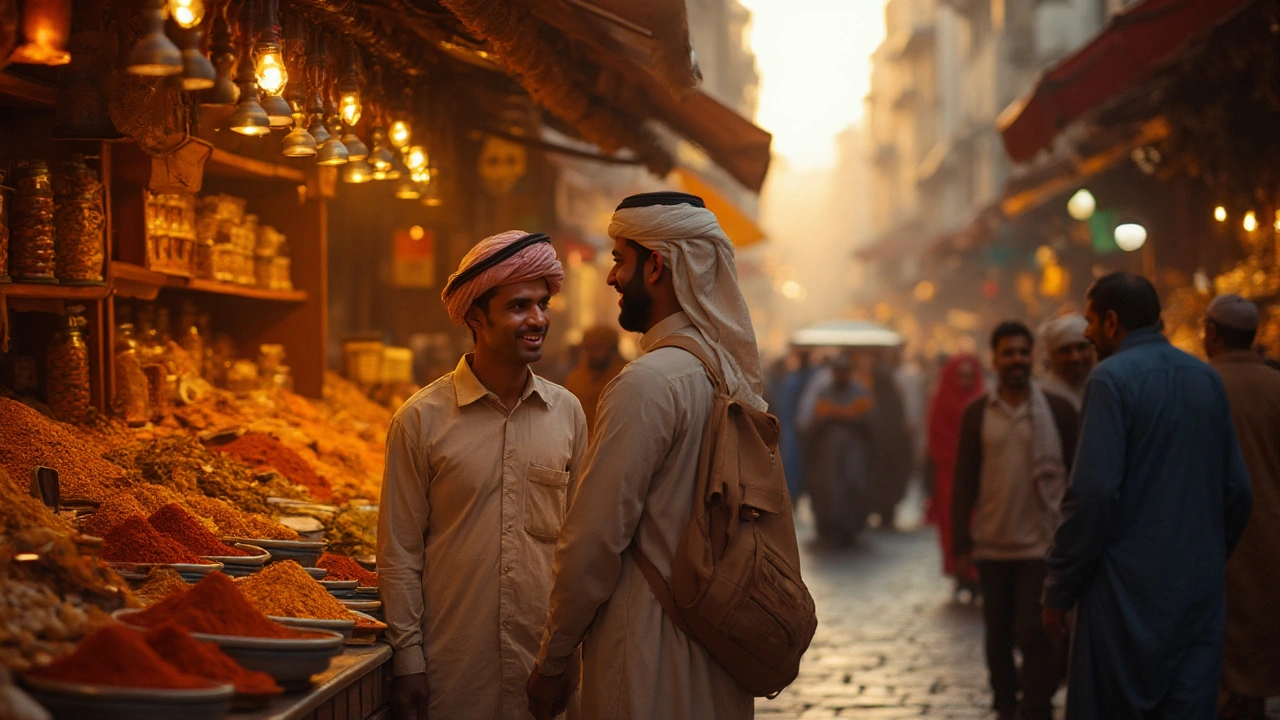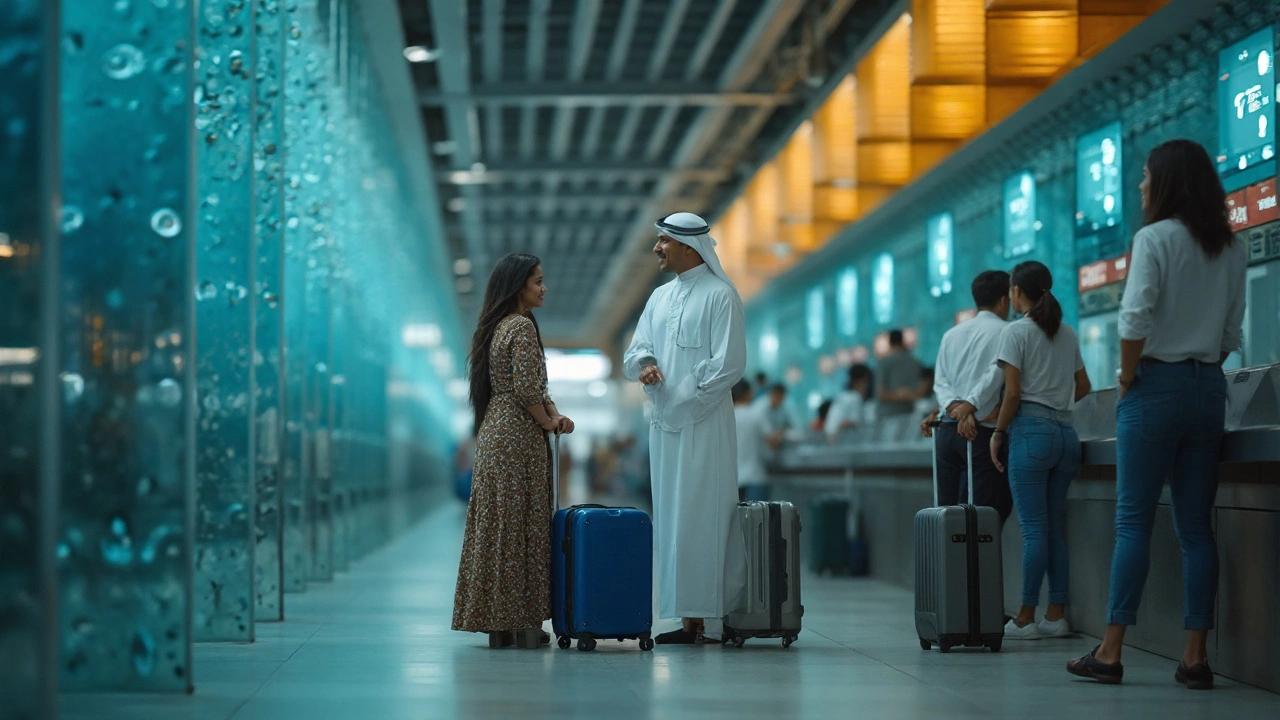Short answer? Yes-Dubai runs comfortably on English. It’s the city’s daily bridge language across 200+ nationalities. But you’ll still hit moments where simple Arabic or clear, practical tips save time and awkwardness. This guide sets expectations, shows real scenarios, and gives you a small toolkit you’ll actually use.
TL;DR: Can You Use English in Dubai?
- You can navigate Dubai end to end in English-airports, malls, hotels, ride apps, metro, restaurants, clinics, tours, and most offices handle English smoothly.
- Arabic is the UAE’s official language (UAE Government Portal). English is the working lingua franca in business, hospitality, and retail.
- Where English can be spotty: street-level bargaining in older souks, small repair shops, some deliveries, and with a few taxi drivers during peak rush. Clear addresses and simple words help.
- Legal/official matters: many documents are bilingual, but Arabic is the language of the courts. For contracts, licenses, and fines, certified Arabic translations may be required (Ministry of Justice rules).
- Quick win: learn five Arabic niceties-“Salaam” (hello/peace), “Shukran” (thank you), “Min fadlak/fadlik” (please m/f), “Ayna…?” (where is…), “Kam?” (how much). People appreciate the effort.
How to Get Around Dubai Using Only English (Step-by-Step)
Use this when you land or if you’re new to the city. It’s the shortest path to a stress-free first 48 hours.
- At the airport (DXB)
Follow bilingual signs (Arabic/English) to immigration and baggage. Staff speak English. If an e-gate confuses you, say “English, please?” and a helper will guide you. - Get connected
Pick up a tourist SIM from Etisalat or du at arrivals. Ask: “Tourist plan-data please.” Mobile data makes translation, maps, and ride apps easy. - Ride into the city
Use Careem or Uber for crystal-clear addresses in English. For taxis, show the map pin or a saved place name. Say the area first, then building. Example: “Business Bay, Bay Square, Building 7.” - Metro and buses
Buy a Nol card at the kiosk-ask: “Two-day pass, please.” Station signs, platform screens, and announcements are in Arabic and English (RTA). If you’re unsure, ask the staff: “Which platform for Expo City?” - Check-in and dining
Hotel and restaurant teams operate in English. For dietary needs, keep it simple: “No nuts.” “Vegetarian.” Halal is standard, but still ask if needed. - Payments
Cards dominate. Say “Tap?” if you want contactless. Cashiers are used to English. Tipping is optional but appreciated for good service (5-10%). - Emergencies and clinics
Hospital and urgent care staff commonly speak English. If calling emergency services, speak slowly: “Ambulance. Chest pain. Dubai Marina, Marina Gate 2.” Keep your location clear. - Government-lite errands
Many resident tasks are online with English interfaces (UAE Pass, RTA, GDRFA portals). At service centers, ask the receptionist for an English counter or translator if you’re stuck.

Real-World Examples by Place and Situation
You’ll see English everywhere. Here’s how it actually plays out on the ground-and how to fix misunderstandings fast.
- DXB / DWC airports: Immigration officers, customs, duty-free, and signage are bilingual. If a queue has mixed languages, staff will switch to English on cue.
- Hotels and resorts: English is standard at front desks, concierge, spas, and room service. If something’s off, say it plainly: “The AC isn’t cooling. Could someone check it?”
- Restaurants and cafes: English menus are the norm. If you’re unsure what a dish contains, ask: “What’s in it?” or “Any dairy?” Staff will keep it simple.
- Souks and markets (Deira, Bur Dubai): English works for basics-“How much?” “Best price?” If the vendor’s English is limited, use numbers on your phone screen to negotiate.
- Supermarkets and pharmacies: Cashiers and pharmacists handle English well. For medication, show the name (photo helps) and say dosage needs: “Ibuprofen 200 mg, 20 tablets.”
- Taxis during rush: A few drivers might struggle with neighborhood nicknames. Share the map pin. If needed, give a major landmark: “Near Dubai Mall, Fashion Avenue entrance.”
- Business meetings: English is the working language across most companies. For official filings, translations might be required-ask the PRO (public relations officer) or your corporate service provider.
- Deliveries (food, packages): Drivers often call: “Hello, I’m outside.” If they’re lost, use landmarks: “Opposite Carrefour, next to white mosque.” Simple beats long directions.
| Place / Service | English Availability | What Works Best | Backup Move |
|---|---|---|---|
| DXB Airport | Very high | Ask staff in English; follow bilingual signs | Point to boarding pass or screen |
| Metro & Buses (RTA) | Very high | “Which platform for …?” | Show map on phone to staff |
| Hotels/Resorts | Very high | Clear, simple requests | Write requests in notes app |
| Malls/Restaurants | Very high | English menus; point to items | Use photos of dietary needs |
| Souks/Street bargaining | Medium | Numbers and short phrases | Type price on calculator |
| Taxis in peak hours | Medium-High | Share map pin; say area first | Landmark + building number |
| Clinics/Hospitals | High | Plain, slow sentences | Show med history in English |
| Government service centers | High (frontline) | Ask for English counter | Request translator or PRO |
Behind the scenes, Dubai is one of the most internationally mixed cities on earth-about 88-90% of residents are expatriates, according to Dubai Statistics Center population reports. Arabic remains the official language, and English is the everyday bridge language across business, hospitality, and retail. The UAE Government Portal highlights Arabic as the official language while acknowledging English is widely used in education and commerce. The Roads and Transport Authority (RTA) uses bilingual signage and announcements across the metro and tram, which you’ll notice right away.
Bottom line: you’ll do great with English in Dubai-and a few local courtesies take you from “fine” to “fantastic.”
Quick Language Cheat-Sheet, Etiquette, and Pro Tips
Want to be understood fast and treated warmly? Keep it short, smile, and use these tiny helpers.
Five Arabic phrases you’ll use constantly
- Hello/Peace: “Salaam” or “As-salaamu alaykum” (reply: “Wa alaykum as-salaam”)
- Please: “Min fadlak” (to a man) / “Min fadlik” (to a woman)
- Thank you: “Shukran”
- How much?: “Kam?”
- Where is…?: “Ayna…?”
Etiquette that travels well
- Polite tone beats fancy vocabulary. Short, clear English works best: “Table for two, please.”
- Dress modestly in mosques and older neighborhoods. Staff will guide you in English about what’s appropriate.
- Friday is a holy day; some offices open later. Hospitality stays English-ready as usual.
Pro tips when English wobbles
- Show, don’t tell: use a map pin, photo, or written number. Visuals clear up accents instantly.
- Speak in keywords: “Allergy-no peanuts.” “Taxi-Business Bay-Tower A.”
- Use translation apps offline. Save your address in Arabic and English.
- For deliveries, add a landmark in your notes: “Opposite XYZ supermarket.”
- If someone doesn’t understand, don’t repeat louder-rephrase shorter.
Safety and emergencies
- Emergency number is 999 (police/ambulance). Dispatchers handle English; speak slowly with your location first.
- In clinics, ask for an English-speaking doctor if you feel uncertain. It’s common to accommodate this.
| Topic | Fast Fact (2025) | What It Means for You |
|---|---|---|
| Official language | Arabic (UAE Government Portal) | Expect Arabic on official stamps and legal texts |
| Working language | English across business, hospitality, retail | Day-to-day life is easy in English |
| Population mix | ~88-90% expatriates (Dubai Statistics Center) | High English exposure, many accents |
| Transport | Bilingual signs & announcements (RTA) | Navigation in English is straightforward |
| Courts & legal | Arabic governs; translations required | Use certified translators for filings |

Mini‑FAQ and Next Steps
Do locals actually use English with each other?
Often, yes-especially across different nationalities and in mixed work teams. Arabic is common among Arabic speakers, of course, but English is the default bridge in many settings.
Will I need Arabic to order food or shop?
No. Menus, receipts, and cashier flows run well in English. If you hit a language snag, point to the menu item and say, “This one, please.”
Is English okay for business meetings and emails?
Yes. English is normal for presentations, contracts drafts, and day-to-day operations. For company setup or litigation, official Arabic translations may be mandatory. Ask your PRO or corporate service provider to confirm requirements before signing.
Can I take the driving test in English?
Driving theory tests are available in English through RTA-approved centers. Practical tests are manageable with basic English instructions. Check the RTA portal when booking for your preferred language option.
Are school lessons in English?
Many private/expat schools teach primarily in English with Arabic as a subject (KHDA overseen). Public schools focus more on Arabic. Admissions teams handle English inquiries easily.
Do police and emergency services speak English?
Yes. Call handlers and frontline officers commonly use English. Give your location first, then the issue: “Al Barsha 1, near Mall of the Emirates, car accident.”
Will I be understood in older neighborhoods?
Usually, yes-basic English gets you by. To help, use numbers and landmarks, and keep sentences short. In traditional areas, polite Arabic greetings go a long way.
How about outside Dubai?
In Abu Dhabi and Sharjah, English is also common, but you might notice more Arabic signage in smaller towns. Same rules: keep it simple, use visuals, and save addresses in both languages.
Next steps if you’re visiting for a week
- Save your hotel name and address in Arabic and English in your notes app.
- Download Careem and Uber; add a working card and your favorite places.
- Grab a Nol card at the first metro station; it covers metro, tram, and many buses.
- Learn three phrases: “Shukran,” “Min fadlak/min fadlik,” “Ayna…?”
- Screenshots beat speeches-maps, menu photos, allergy notes.
Next steps if you’re relocating
- Set up UAE Pass; most portals have an English interface.
- Ask HR/PRO which documents need certified Arabic translations.
- Choose a neighborhood with the services you need (clinics, schools) and visit in person-English is fine.
- Take a short Arabic basics course; 10-20 phrases pay off fast.
- Keep all addresses in both languages for deliveries and DEWA/Etisalat service calls.
Final thought: Dubai welcomes English by default. Bring a few Arabic courtesies, embrace simple sentences, and lean on visuals when accents collide. You’ll move through the city confidently-and a little kindness will unlock doors you didn’t know were there.
Escort Dubai